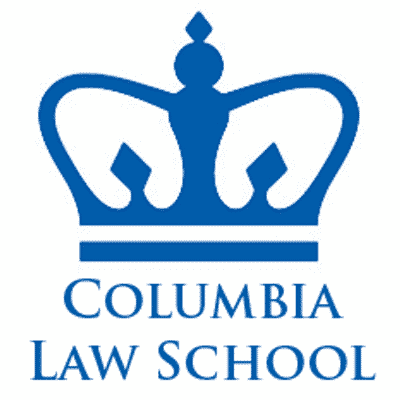
Columbia Law School traces its roots back to Kings College which operated during the Colonial Period and whose graduates include John Jay, the first Chief Justice of the Supreme Court. The Columbia Law School officially opened in 1858 and was one of the first schools to provide a systematic education in law as opposed to the more traditional method of apprenticeship. As one of the oldest and most prominent law schools in the United States, Columbia has produced a number of Supreme Court Justices and has educated two US Presidents: Theodore and Franklin Roosevelt. Located in the heart of New York City, Columbia Law School provides a world class legal education in one of the most vibrant cities in the world.
Education
In their first year of law school, students at Columbia will cover the standard first year courses: Civil Procedure, Constitutional Law, Contracts, Criminal Law, Property, and Torts. In addition, all first year students will take classes in legal methods, writing, research and analytics. All first year students are required to take a foundation year moot court class which requires writing a brief and making oral arguments in front of a panel of judges. Finally, in the second semester of the their first year, students may select one elective.
The remaining two years of the Juris Doctor program involves any number of diverse classes covering all areas of the law. Students, however, are required to complete a class in professional responsibility, two writing credits, a minimum of six experiential credits, and at least 40 hours of pro bono work. Columbia Law offers a wide range of international programs in conjunction with other universities.
Additional Programs
Columbia Law School has a highly regarded Masters of Law (LL.M) and Doctor of the Science of Law (J.S.D.) program. The LL.M program allows students a wide array of choices to compliment their J.D. degree. The J.S.D. program allows further focus on one area such academia or civil rights and human rights advocacy while producing a dissertation and a year of residential learning.
Columbia Law also offers joint degree program with virtually every other graduate department including Arts & Science, Business, Journalism, Public Health, Architecture, Public Affairs, Arts, and Social Work. Work in other graduate programs can generally count for up to twelve credits in the Law School and, therefore, reduce the total number of academic credits needed for a J.D. Columbia Law School also has a joint degree with the Princeton University’s Woodrow Wilson School of Public and International Affairs.
Career and Career Placement
Almost 95% of Columbia’s graduate are employed in long term careers requiring bar passage within 10 months of graduation. This reflects Columbia Law’s tradition of producing some of the best practicing lawyers in the world. The majority of these lawyers accept positions at large law firms with over 500 employees. Finally, most Columbia Law graduates continue their practice in the State of New York (75%) with 5% practicing in D.C. or California.
The Columbia Law Career Services office has a staff of over 12 counselors and advisers who work both on campus and remotely. For students, Columbia Law provides an Early Interview Program to match potential employers with students. The EIP program is held in July at an off-campus location. Columbia Law also provide on-campus interviews for second and third year students.
Experiential Learning/Distance Education
Columbia Law School is the home of an operating public interest law firm: Morningside Heights Legal Services, Inc. Students in Columbia Law’s robust clinical program are members of that law firm and, therefore, receive robust practical training in advocacy and the practice of law. Students can earn up to 7 credits for a fall clinic and 5 credits in the spring. Clinics require a strong time commitment of over 20 hours per week including classroom and clinic work.
Given its location in New York City, Columbia Law has one of the most extensive externship programs in the country. The externships allow students another avenue to gain practical skills while working on real-life legal problems. Columbia Law also sponsors simulations where students use real skills to tackle complex, simulated legal problems that they may face in their future practice work. Finally, Columbia Law offers semester long “policy labs” which allow students to interact with other students, faculty and government officials to work on legal solutions for real problems.
Student Life
Students at Columbia Law school enjoy a fast paced, unique experience set in one of the busiest metropolitan areas in the world. Columbia Law students have access to Columbia’s unique and thorough health and wellness programs. The Law School has a robust student organization program with over 80 active student groups. Columbia Law also provides law school only housing as well as a range of housing opportunities in the Manhattan area. Finally, Columbia Law students have access to the rich art and cultural traditions in the New York City area. Students receive free admissions to many museums and discounts to shows such as Broadway musicals.